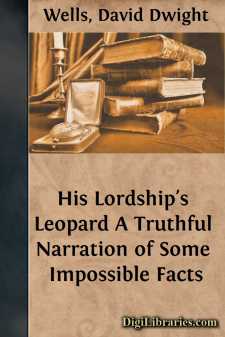Categories
- Antiques & Collectibles 13
- Architecture 36
- Art 48
- Bibles 22
- Biography & Autobiography 816
- Body, Mind & Spirit 145
- Business & Economics 28
- Children's Books 17
- Children's Fiction 14
- Computers 4
- Cooking 94
- Crafts & Hobbies 4
- Drama 346
- Education 58
- Family & Relationships 59
- Fiction 11834
- Foreign Language Study 3
- Games 19
- Gardening 17
- Health & Fitness 34
- History 1378
- House & Home 1
- Humor 147
- Juvenile Fiction 1873
- Juvenile Nonfiction 202
- Language Arts & Disciplines 89
- Law 16
- Literary Collections 686
- Literary Criticism 179
- Mathematics 13
- Medical 41
- Music 40
- Nature 179
- Non-Classifiable 1768
- Performing Arts 7
- Periodicals 1453
- Philosophy 66
- Photography 2
- Poetry 897
- Political Science 203
- Psychology 45
- Reference 154
- Religion 516
- Science 126
- Self-Help 85
- Social Science 82
- Sports & Recreation 34
- Study Aids 3
- Technology & Engineering 59
- Transportation 23
- Travel 463
- True Crime 29
Our website is made possible by displaying online advertisements to our visitors.
Please consider supporting us by disabling your ad blocker.
His Lordship's Leopard A Truthful Narration of Some Impossible Facts
Description:
Excerpt
CHAPTER I.
IN WHICH CECIL BANBOROUGH ACHIEVES FAME AND THE "DAILY LEADER" A "SCOOP."
Cecil Banborough stood at one of the front windows of a club which faced on Fifth Avenue, his hands in his pockets, and a cigarette in his mouth, idly watching the varied life of the great thoroughfare. He had returned to the city that morning after a two weeks' absence in the South, and, having finished his lunch, was wondering how he could manage to put in the time till the 4:30 express left for Meadowbrook. 2 p.m., he reflected ruefully, was an hour when New York had no use and no resources for men of leisure like himself.
Yet even for a mere onlooker the panorama of the street was of unusual interest. The avenue was ablaze with bunting, which hurrying thousands pointed out to their companions, while every street-corner had its little group of citizens, discussing with feverish energy and gestures of ill-concealed disquietude the situation of which the gay flags were the outward and visible sign. For in these latter days of April, 1898, a first-class Republic had, from purely philanthropic motives, announced its intention of licking a third-rate Monarchy into the way it should go. Whereat the good citizens had flung broadcast their national emblem to express a patriotic enthusiasm they did not feel, while the wiser heads among them were already whispering that the war was not merely unjustifiable, but might be expensive.
All these matters, important as they doubtless were, did not interest Cecil Banborough, and indeed were quite dwarfed by the fact that this uncalled-for war had diverted the press from its natural functions, and for the time being had thrown utterly into the shade his new sensational novel, "The Purple Kangaroo." His meditations were, however, interrupted by the sound of voices using perfectly good English, but with an accent which bespoke a European parentage.
"'The Purple Kangaroo,'" said one. "It is sufficiently striking—Si, Señor?"
"It serves the purpose well, mi amigo," replied the other. "It is, as you say, striking; indeed nothing better could be devised; while its reputation—" And the voices died away.
Cecil swung rapidly round. Two gentlemen, slight, swarthy, and evidently of a Latin race, were moving slowly down the long drawing-room. They were foreigners certainly, Spaniards possibly, but they had spoken of his book in no modified terms of praise. He drew a little sigh of satisfied contentment and turned again to the street. Ah, if his father, the Bishop of Blanford, could have heard!
The two foreigners had meanwhile continued their conversation, though out of earshot. The elder was speaking.
"As you say, its reputation is so slight," he said, "one of those ephemeral productions that are forgotten in a day, that it will serve our purpose well. We must have a password—the less noticeable the better. When do you return to Washington?"
"The Legation may be closed at any moment now," replied the younger, seating himself carelessly on the arm of a Morris chair, "and I may be wanted. I go this afternoon, a dios y a ventura."
"Softly; not so loud."
"There's no one to hear. Keep us informed, I say. I'll see to the rest. We've our secret lines of communication nearly complete. They may turn us out of their capital, but—we shall know what passes. Carramba! What is that?" For, in leaning back, the speaker had come against an unresisting body.
Springing up and turning quickly round, he saw that the chair on the arm of which he had been sitting was already occupied by the slumbering form of a youngish man with clear-cut features and a voluminous golden moustache.
"Madre de Dios! Could he have heard?" exclaimed the younger man, moving away....


